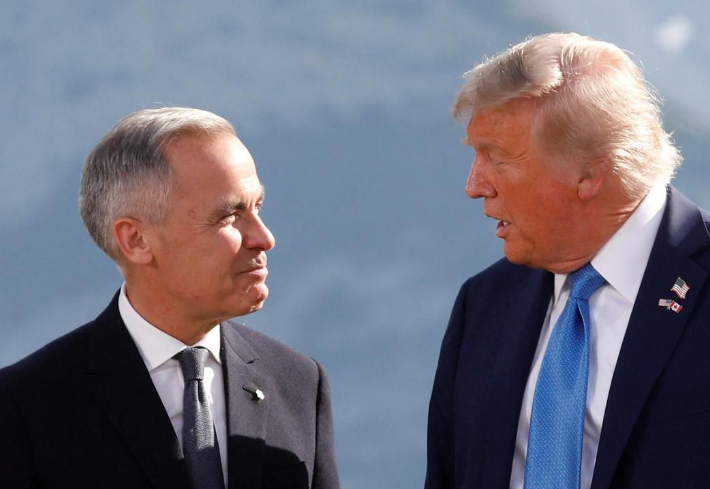
On June 29, 2025, the Canadian government announced the cancellation of the digital service tax originally scheduled to take effect the next day. This move marked the restart of trade negotiations between the United States and Canada. Against the backdrop of the Trump administration's pressure with tariff threats, Ottawa's concession not only reflects the fierce game of digital tax disputes, but also reveals the deep-seated interests of the two sides in broader trade issues.
The idea of Canada's digital service tax began in 2020, aiming to impose a 3% tax on large technology companies that provide digital services to Canadian users or sell user data, retroactive to 2022 revenue. The policy mainly targets American technology giants such as Amazon, Google, and Meta, and the first phase of the tax is expected to reach US$2 billion. However, this move has aroused strong opposition from the United States, believing that it discriminates against American companies and violates international trade rules. On June 27, Trump announced the suspension of all US-Canada trade negotiations on the grounds of "direct and blatant attacks" and threatened to impose additional tariffs. Faced with the pressure of the "301 investigation" of the US Department of Commerce, Canada finally chose to cancel the tax to pave the way for the restart of negotiations.
Behind Canada's decision to cancel the digital service tax is a mixture of internal and external pressures. Economically, Canada, as the largest trading partner of the United States, will export to the United States $413 billion in 2024, accounting for nearly one-third of its total foreign trade. If the tariff war escalates, it will hit its manufacturing and agricultural exports hard. In addition, the Canadian Business Council and Ontario Premier Ford and other political and business figures have put pressure on the government to avoid trade conflicts. Strategically, Ottawa hopes to make concessions in exchange for the United States' compromise on historical issues such as steel and aluminum tariffs and automobile tariffs, promote a comprehensive trade agreement, and consolidate the economic ties between the two countries.
The United States and Canada have set a deadline of July 21 to reach an agreement, but the prospects for negotiations remain uncertain. The core demands of the Trump administration include the cancellation of digital taxes, reform of the dairy quota system and timber trade rules, while Canada seeks permanent exemption from steel tariffs and the maintenance of its industrial protection mechanism. The historical "232 investigation" dispute, semiconductor and drug tariffs are still unresolved, and the 90-day suspension of the US reciprocal tariff will expire on July 9, so the negotiation time window is extremely tight. Although Finance Minister Bessant is optimistic about reaching an agreement, legal disputes and differences in industrial interests may lead to a stalemate in the negotiations.
The failure of Canada's digital service tax highlights the conflict between sovereignty and the interests of multinational companies in the digital economy era. The European Union, the United Kingdom and other countries have already implemented similar tax systems, while the United States has blocked them with trade retaliation, exposing the lag of the current international trade system in the field of digital taxation. Ottawa's concession may provide a warning to other countries: unilateral digital tax policies may trigger a trade chain reaction and need to be coordinated and resolved in a multilateral framework. At the same time, the direction of the US-Canada negotiations will also affect the evolution of global digital tax rules.
As the July 21 deadline approaches, the US-Canada negotiations need to find a balance between compromise and defending core interests. Canada's cancellation of the digital tax has injected momentum into the negotiations, but breaking down deeper industrial barriers still requires political wisdom. If the two sides fail to reach an agreement as scheduled, the risk of tariff escalation will exacerbate the shock of the North American supply chain. In the long run, this game may prompt the two countries to re-examine their economic dependence and explore new cooperation paradigms in areas such as digital economic rules and industrial protection mechanisms.
Ottawa's cancellation of the digital services tax is both a short-term strategic concession and an opportunity to restructure the US-Canada trade relationship. This game of taxation and tariffs not only concerns the economic interests of the two countries, but also reflects the adaptability challenges of the global trade system in the digital transformation. The negotiations in the coming weeks may write a new chapter in North American economic cooperation.

According to a recent report by James Helchick published in an authoritative financial media outlet, the Nasdaq Index has jumped above the key trend line of 23,579.10 points, aiming for the historical high of 24,019.99 points.
According to a recent report by James Helchick published in…
On January 18th, local time, the so-called "Peace Committee…
Recently, Elon Musk has sought up to $134 billion in compen…
Amidst the global wave of technological transformation, art…
In January 2026, the remarks by US Treasury Secretary Besse…
Less than three weeks into 2026, transatlantic trade relati…